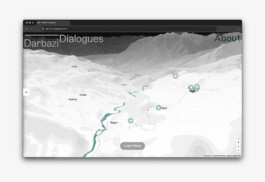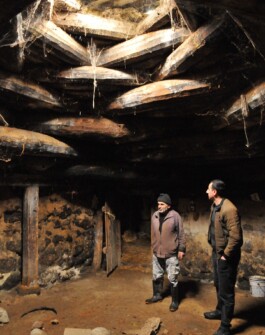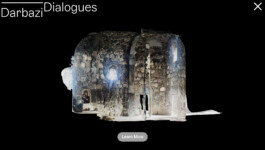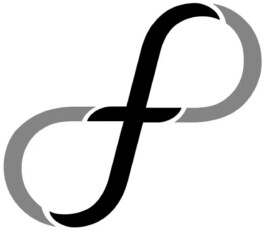Darbazi Dialogues
Digital, Workshop
Darbazi Dialogues is a field school and research platform based in the high, cold, and arid regions of Georgia—Samtskhe-Javakheti. Here, the »School of Visual Art, Architecture and Design«, »Free University Tbilisi« and Froh! have organized our fieldwork around the darbazi (დარბაზი)—one of the three or four most prototypical house-types of Georgia.

Architecturally, the darbazi is a partially underground dwelling, characterized by a more or less elaborate wooden roof structure constructed by the stacked corbeling of large timbers to form a partial-domed roof. This corbeled roof is itself covered in a carefully layered set of materials—thin slate, rot-resistant wooden boughs, topped by a thick layer of earth—producing a dwelling that is less a building on the landscape than one that is a constituent element of that landscape. And while the central, corbelled chamber is indeed the ceremonial and architectural center of the house, a single dwelling complex is generally composed of an aggregation of other rooms for sleeping, storage, cooking, and animal husbandry. Our interest in the darbazi, then, spans from its architectural and structural articulation through an expanded cohabitation of human and non-human animals to the reworking of geology and landscape itself.
Medium
Website
Year
2024
Location
Georgia
Team
Klaus Neuburg, Moritz Winkler
Duration
7 Days


The work then, is oriented on the one hand toward the study and research of important historical building types, but always within the framework of a lived present. Not the elaboration of fixed, historical typological categories but an immersion in the living and working landscapes of the regions where we are lucky enough to work. As with all fieldwork, the repeat visits it takes to locate darbazi, as well as the time to conduct the scans themselves, is in some ways the point of the project itself. It includes conversations with local inhabitants that quickly expand beyond the topic of this building type to include patterns of work and life in the present. Time and waiting seem to be where micro-trusts are made and built over return visits, to form something of a friendship with individuals and even places. In that sense, we do not claim or even desire the clarity of ethnographic distance. Nor is this an exercise in pure architectural documentation or conservation. Rather, our orientation remains in the present and toward the time ahead, where ways of knowing and ways of being reconverge in new typologies of living and working.

Darbazi Dialogues Team:
Ramaz Kiknadze
Tata Koiava
Giorgi Margishvili
Jesse Vogler
Participants Fall 2024:
Nini Jabidze
Eka Khomeriki
Giorgi Mikava
Mea Miminoshvili
Lela Tartarashvili
Marika Verulidze
Tako Kobakhidze
Acknowledgements:
A project such as this would be unthinkable without the generosity of innumerable local families, darbazi owners, and regional experts. Our deepest and most sincere gratitude to all! A special thanks to our ongoing hosts:
Jemal Datashvili–Khizabavra Deacon
Giorgi Quqchishvili–Khizabavra History Teacher
Giorgi Maghradze–Akhaltsikhe Municipality
Rezo Andghuladze–Akhaltsikhe Municipality
Mehrab Beridze–Akhaltsikhe University Vice-Rector
Dorus Daneels–Brussels
In Cooperation with:
School of Visual Art, Architecture and Design
Free University Tbilisi
Project by:


Darbazi Dialogues
Digital, Workshop
Darbazi Dialogues is a field school and research platform based in the high, cold, and arid regions of Georgia—Samtskhe-Javakheti. Here, the »School of Visual Art, Architecture and Design«, »Free University Tbilisi« and Froh! have organized our fieldwork around the darbazi (დარბაზი)—one of the three or four most prototypical house-types of Georgia.

Architecturally, the darbazi is a partially underground dwelling, characterized by a more or less elaborate wooden roof structure constructed by the stacked corbeling of large timbers to form a partial-domed roof. This corbeled roof is itself covered in a carefully layered set of materials—thin slate, rot-resistant wooden boughs, topped by a thick layer of earth—producing a dwelling that is less a building on the landscape than one that is a constituent element of that landscape. And while the central, corbelled chamber is indeed the ceremonial and architectural center of the house, a single dwelling complex is generally composed of an aggregation of other rooms for sleeping, storage, cooking, and animal husbandry. Our interest in the darbazi, then, spans from its architectural and structural articulation through an expanded cohabitation of human and non-human animals to the reworking of geology and landscape itself.
Medium
Website
Year
2024
Location
Georgia
Team
Klaus Neuburg, Moritz Winkler


The work then, is oriented on the one hand toward the study and research of important historical building types, but always within the framework of a lived present. Not the elaboration of fixed, historical typological categories but an immersion in the living and working landscapes of the regions where we are lucky enough to work. As with all fieldwork, the repeat visits it takes to locate darbazi, as well as the time to conduct the scans themselves, is in some ways the point of the project itself. It includes conversations with local inhabitants that quickly expand beyond the topic of this building type to include patterns of work and life in the present. Time and waiting seem to be where micro-trusts are made and built over return visits, to form something of a friendship with individuals and even places. In that sense, we do not claim or even desire the clarity of ethnographic distance. Nor is this an exercise in pure architectural documentation or conservation. Rather, our orientation remains in the present and toward the time ahead, where ways of knowing and ways of being reconverge in new typologies of living and working.

Darbazi Dialogues Team:
Ramaz Kiknadze
Tata Koiava
Giorgi Margishvili
Jesse Vogler
Participants Fall 2024:
Nini Jabidze
Eka Khomeriki
Giorgi Mikava
Mea Miminoshvili
Lela Tartarashvili
Marika Verulidze
Tako Kobakhidze
Acknowledgements:
A project such as this would be unthinkable without the generosity of innumerable local families, darbazi owners, and regional experts. Our deepest and most sincere gratitude to all! A special thanks to our ongoing hosts:
Jemal Datashvili–Khizabavra Deacon
Giorgi Quqchishvili–Khizabavra History Teacher
Giorgi Maghradze–Akhaltsikhe Municipality
Rezo Andghuladze–Akhaltsikhe Municipality
Mehrab Beridze–Akhaltsikhe University Vice-Rector
Dorus Daneels–Brussels
In Cooperation with:
School of Visual Art, Architecture and Design
Free University Tbilisi
Project by:

